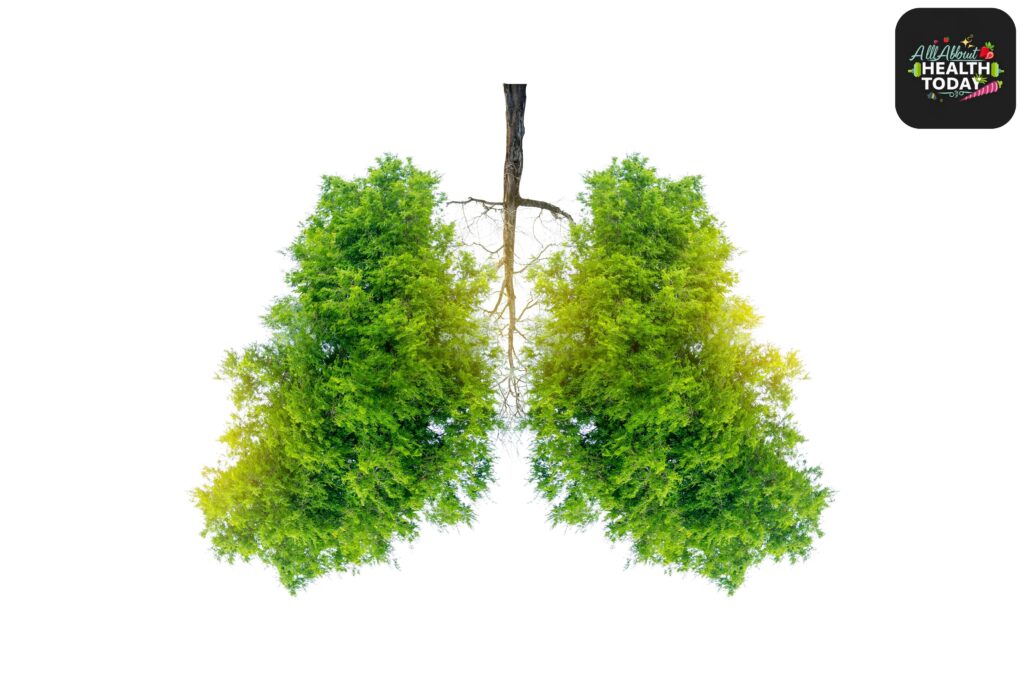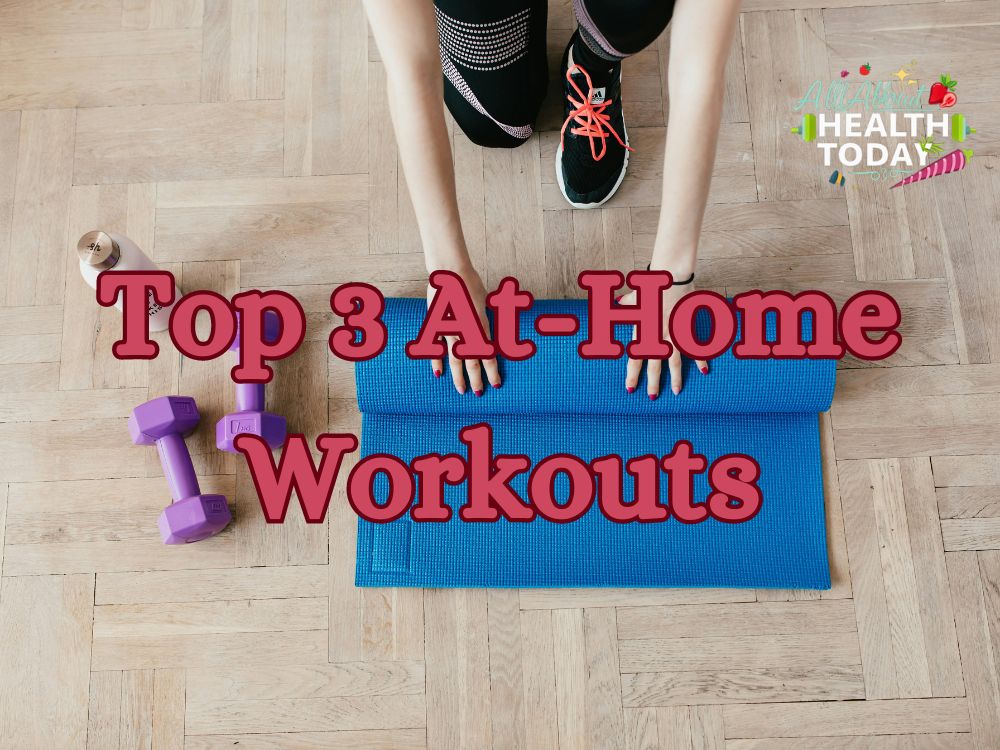Table of Contents
Intro to Respiratory Health
Understanding Your Lungs:
Imagine this: every breath you take not only fills you with life but also tells a story—a story of how well you’re living, moving, and facing the world around you. This isn’t just about the air we breathe; it’s about how our lungs turn that air into the energy that powers every moment of our lives. Welcome to your ultimate guide to maintaining a healthy respiratory system, a journey that goes beyond the basics to unlock the full potential of your lungs.
Why Respiratory Health Matters:
Why does this matter? Because a healthy respiratory system plays a vital role in more than just survival—it’s about thriving. It’s the difference between waking up feeling refreshed or struggling through your day. It’s about enhancing every heartbeat with quality oxygen that keeps your mind clear and your body buzzing with energy.
In this guide, you’ll discover not just the foundations of respiratory health, but also the secrets and strategies for turning good into great. Whether you’re looking to boost your physical performance, shield yourself from environmental challenges, or simply enjoy a deeper, cleaner breath, we’ve got you covered. We’ll walk you through the science, the habits, and the little changes that can make a big difference in how you feel every day.
So, take a deep breath—let’s dive into the ultimate guide to maintaining a healthy respiratory system. Because in the grand scheme of things, every breath is a precious opportunity to live your best life.
Importance of a Healthy Respiratory System
Efficient Oxygen Exchange: The Heart of Vitality
Every breath you take is a testament to the miracle of oxygen exchange, a process vital for your survival and well-being. Inside your lungs, tiny air sacs called alveoli work tirelessly, allowing oxygen to enter your bloodstream with every inhale and carbon dioxide to be expelled with every exhale. This exchange is crucial; without it, the cells in your body would quickly run out of energy and cease to function. According to the American Lung Association, efficient oxygen exchange supports not just physical vitality but also mental sharpness, enhancing your overall quality of life.
Removal of Waste Products: Keeping the System Clean
Your respiratory system isn’t just about bringing in the good; it’s also about getting rid of the bad. Carbon dioxide, a waste product of metabolism, is expelled from your body with each breath. This balancing act is critical for maintaining the body’s pH level, ensuring that your internal environment remains perfectly tuned for optimal health. Research published in the Journal of Applied Physiology emphasizes how disruptions in this balance can affect the body, highlighting the importance of maintaining healthy lung function.
Protection against Infections: Your Immune System’s Ally
The respiratory system plays a vital role in defending your body against external threats. The nose and airways are lined with mucous membranes that trap dust, pathogens, and other particles, preventing them from reaching the lungs. Cilia, tiny hair-like structures, then sweep these invaders out, keeping your lungs clean. Studies, including those in the Clinical Microbiology Reviews, show how this first line of defence is crucial in preventing respiratory infections and supporting overall immune function.
Improved Physical Performance: Beyond the Basics
The connection between respiratory health and physical performance is profound. Athletes know this all too well, as every breath can be the difference between victory and defeat. Enhanced lung function means superior oxygen delivery to muscles, boosting endurance and strength. The European Journal of Applied Physiology presents evidence of how targeted respiratory muscle training can elevate athletic performance, emphasizing the respiratory system’s pivotal role in achieving peak physical condition.
Essentials for Maintaining a Healthy Respiratory System
Regular Exercise: Breathe Better, Live Better
In the quest for a healthier respiratory system, exercise emerges not just as a recommendation, but a necessity. When we engage in regular physical activity, we do more than just strengthen our muscles and heart; we also enhance our lung capacity and the efficiency of our respiratory muscles. This is vital for improving the overall function of our respiratory system, making each breath we take more effective and ensuring our bodies get the oxygen they need to thrive.
But how does exercise achieve this? During physical activity, our breathing rate increases to meet the higher demand for oxygen. This process, over time, strengthens the diaphragm and the muscles around our lungs, making them more efficient at their job. It’s like upgrading the engine of that high-performance vehicle we talked about earlier – better performance, better results. According to the British Journal of Sports Medicine, individuals who incorporate regular, moderate exercise into their routine can significantly improve their lung function and reduce the risk of chronic respiratory diseases.
Moreover, exercise acts as a natural cleaner for your airways. The increased airflow helps clear out mucus and other substances that can build up, potentially reducing the risk of infections and improving overall lung health. It’s a win-win scenario that not only boosts your respiratory system but enhances your quality of life. To support your exercise regimen and ensure you’re getting the essential nutrients your body needs, consider adding a multivitamin to your daily routine. Here’s a complete guide on what works.
Maintaining a Balanced Diet: Foods That Boost Lung Health
Did you know that what you eat can significantly affect your respiratory health? A balanced diet rich in fruits, vegetables, lean proteins, and whole grains can provide your lungs with the nutrients they need to function optimally. Antioxidants, found in abundance in berries, nuts, and green leafy vegetables, play a crucial role in protecting your lungs from inflammation and damage caused by pollutants and toxins. These powerful compounds help fight off harmful molecules known as free radicals, ensuring your respiratory system stays healthy and resilient.
Omega-3 fatty acids, found in fish like salmon, mackerel, and sardines, are another essential component of lung health. These healthy fats are known for their anti-inflammatory properties, which can be particularly beneficial for individuals with respiratory conditions such as asthma. A study published in the American Journal of Respiratory and Critical Care Medicine highlights the positive impact of omega-3 intake on lung function, suggesting that incorporating these fatty acids into your diet could lead to significant improvements in respiratory health.
🐟 Boost Your Omega 3 Levels! Click here for a discount on premium Omega 3 supplements.
In addition to these nutrient-rich foods, staying hydrated is key. Adequate water intake ensures that the mucus lining your airways remains thin, making it easier to breathe and helping to keep your lungs clear of irritants. Pairing a healthy diet with a comprehensive multivitamin can ensure you’re covering all your nutritional bases, providing an extra layer of support for your respiratory health.
Avoiding Exposure to Environmental Pollutants: Strategies for Clean Air
The air around us can be filled with invisible threats to our respiratory health, from industrial pollutants to indoor allergens. Taking proactive steps to minimize your exposure to these harmful elements is key to maintaining a healthy respiratory system. Here’s how you can protect yourself and your loved ones:
- Monitor Air Quality: Keep an eye on the air quality index (AQI) in your area, especially during high pollution days. Websites like AirNow.gov provide real-time air quality information. On days when the AQI is poor, try to stay indoors as much as possible and keep windows closed to prevent outdoor pollutants from entering your home.
- Use Air Purifiers: Investing in a high-quality air purifier can significantly improve the air quality inside your home. Look for purifiers with HEPA filters, as they are effective at capturing particulate matter, including pollen, dust mites, and tobacco smoke.
- Ventilate Your Home: Ensure your living space is well-ventilated to reduce indoor pollutants. Use exhaust fans in the kitchen and bathroom and open windows when the outdoor air quality is good to allow fresh air to circulate.
- Go Green with Houseplants: Certain houseplants can act as natural air purifiers, absorbing pollutants like benzene, formaldehyde, and trichloroethylene. Spider plants, peace lilies, and snake plants are great options to consider.
- Avoid Smoking: Tobacco smoke is one of the most harmful air pollutants for your lungs. If you smoke, seek help to quit, and avoid exposure to secondhand smoke whenever possible.
By implementing these strategies, you can significantly reduce your exposure to harmful air pollutants and safeguard your respiratory health.

Maintaining Good Hygiene Practices: The First Line of Defense
Good hygiene is crucial in protecting against respiratory infections, which can exacerbate existing conditions and put stress on your respiratory system. Here’s how you can maintain hygiene to keep your lungs healthy:
- Wash Your Hands Regularly: Frequent handwashing with soap and water for at least 20 seconds can drastically reduce the transmission of viruses and bacteria that can lead to respiratory infections.
- Keep Your Living Space Clean: Regularly clean and disinfect surfaces in your home, especially those that are frequently touched, to kill germs and reduce the risk of infection.
- Practice Respiratory Etiquette: Cover your mouth and nose with a tissue or your elbow when coughing or sneezing. Dispose of tissues properly and wash your hands immediately to prevent the spread of germs.
- Stay Up-to-Date with Vaccinations: Ensure you’re vaccinated against respiratory illnesses like the flu and pneumonia. Consult your healthcare provider to stay informed about recommended vaccinations for your age and health status.
- Avoid Close Contact with Sick Individuals: When possible, avoid close contact with people who are sick to reduce your risk of catching a respiratory infection. If you’re ill, stay home to prevent spreading the illness to others.
Incorporating these easy hygiene practices into your daily routine can be a powerful tool in maintaining a healthy respiratory system and preventing the spread of infectious diseases.
Avoiding Respiratory Triggers: Know Your Limits
For individuals with asthma, allergies, or other respiratory conditions, understanding and avoiding triggers is critical to managing symptoms and maintaining good lung health. Here’s how you can identify and steer clear of common respiratory triggers:
- Identify Your Triggers: Keep a diary to track your activities, environments, and symptoms. This can help you identify patterns and pinpoint specific triggers like pollen, dust, pet dander, or smoke.
- Check Pollen and Mold Counts: Websites and weather apps often provide daily updates on pollen and mold counts in your area. When counts are high, try to stay indoors with windows closed, especially during peak times like early morning.
- Use Allergen-Proof Covers: Protect your mattress and pillows with allergen-proof covers to reduce exposure to dust mites. Regularly wash bedding in hot water to kill mites and remove allergens.
- Keep Indoor Air Clean: Use high-efficiency particulate air (HEPA) filters in your home’s HVAC system and vacuum cleaners. These filters can trap fine particles from the air, reducing your exposure to indoor allergens.
- Maintain Humidity Control: High humidity can promote the growth of mold and dust mites. Use a dehumidifier to keep indoor humidity levels between 30-50% and prevent the proliferation of these allergens.
- Avoid Smoke and Strong Odors: Smoke, whether from cigarettes, wildfires, or burning wood, can exacerbate respiratory symptoms. Similarly, strong odors from cleaning agents, perfumes, and paints can trigger reactions. Opt for fragrance-free products and maintain a smoke-free environment.
By taking these steps, you can create a safer, more comfortable environment that minimizes your exposure to respiratory triggers, helping you breathe easier and manage your symptoms more effectively.
Summary and Action Plan
Maintaining a healthy respiratory system is integral to your overall well-being, enhancing your quality of life and enabling you to stay active and energized. By understanding the importance of efficient oxygen exchange, protection against infections, and improved physical performance, you can appreciate the vital role your respiratory system plays in your health.
To keep your lungs healthy, incorporate regular exercise and a balanced diet into your lifestyle, and be proactive in avoiding exposure to environmental pollutants and respiratory triggers. Additionally, adopting good hygiene practices is essential for protecting against respiratory infections.
Action Plan:
- Commit to Regular Physical Activity: Aim for at least 30 minutes of moderate exercise most days of the week.
- Eat a Lung-Healthy Diet: Include plenty of fruits, vegetables, and omega-3-rich foods in your meals.
- Minimize Exposure to Pollutants: Use air purifiers, monitor air quality, and avoid smoking.
- Practice Good Hygiene: Wash your hands frequently and stay up-to-date with vaccinations.
- Identify and Avoid Respiratory Triggers: Keep your environment clean and allergen-free.

Frequently Asked Questions
Let’s unravel some common curiosities about respiratory health. Get ready to embrace a breath of fresh air!
Q: Can improving my diet really help my lungs?
A: Absolutely! A diet rich in antioxidants, vitamins, and omega-3 fatty acids can fight inflammation, protect against damage from pollutants, and even enhance lung function. Think of it as fueling your lungs with the best nutrients for peak performance.
Q: How does exercise benefit my respiratory system?
A: Exercise is like a workout for your lungs. It boosts lung capacity, strengthens respiratory muscles, and improves oxygen exchange. It’s your natural path to breathing more efficiently and living more vibrantly.
Q: What’s the easiest way to reduce my exposure to air pollutants?
A: Start with simple steps: monitor air quality reports, use air purifiers at home, and keep your living spaces clean. Every small change contributes to a big difference in your lung health.
Q: Are there quick tips for dealing with respiratory triggers?
A: Yes! Identify your triggers, maintain a clean environment, and use hypoallergenic covers for bedding. Awareness and prevention are your best tools for managing symptoms.
Embrace these insights to navigate your way to better lung health with confidence and ease. If you’ve got more questions, remember, knowledge is power—especially when it comes to taking care of your respiratory system. Sign up to our FREE weekly newsletter on the homepage for all the latest topics.






